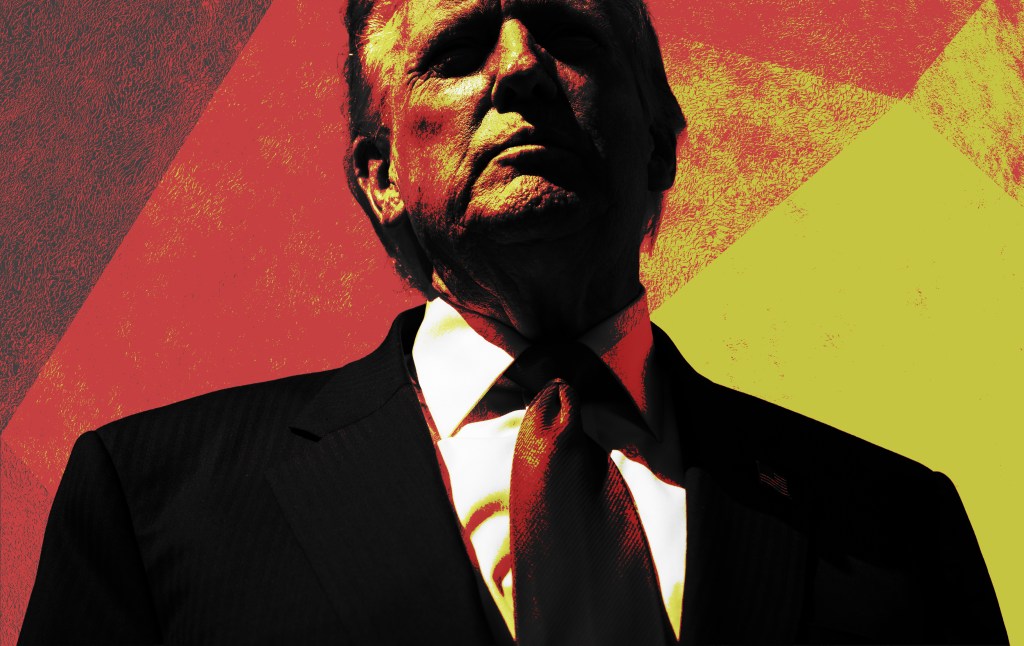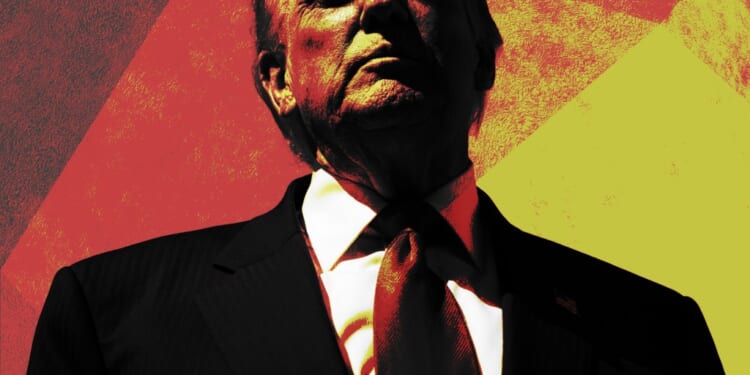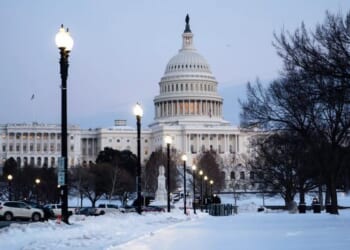
More or less open corruption in the White House. Pardons for sale. Wanton murder on the high seas. Using the Justice Department as a political hit squad.
Chief Justice John Roberts’ creation, ex nihilo, of presidential immunity from criminal prosecution looks dumber every day.
The 2024 immunity case, Trump v. United States, was an attempt to deal with a tricky bit of constitutional engineering: We have a separation of powers among the branches, so that none is subordinate to the others in the performance of its constitutional role. That implies that certain laws passed by Congress directed at the president could be unconstitutional. For example, if Congress passed a law making it a crime for the president to pardon a member of his Cabinet, the president would be able to go to court and have an indictment on the charge thrown out because the law would be plainly unconstitutional: The Constitution gives the president wide pardon powers and does not empower Congress to restrict them. The president would be “immune” from prosecution under that law only in the sense that any other American is immune from prosecution under an unconstitutional law.
While the DOJ has long held a prudential policy of not indicting presidents, there is no legitimate constitutional principle holding that the president or any other elected official is constitutionally immune from prosecution for crimes committed while in office and under color of official deeds. The separation of powers does not require one: We do not, for example, insist that corrupt senators cannot be arrested by the FBI or prosecuted by the DOJ because FBI agents and DOJ lawyers are part of the executive branch. The fundamental thing a member of Congress does is vote for or against bills in Congress, but that such voting is part of his official duties does not provide him with immunity from prosecution if he sells his votes for bribes.
Donald Trump is by nature a corrupt man, the sitting patriarch of a long line of lowlifes and miscreants, born for petty crime, and the first convicted felon to have been elected to the office he holds. He did not need to be encouraged by the Supreme Court’s invention of a presidential immunity that, as some of the supposed textualists on the court must have noticed, does not appear in the text of the Constitution, having evidently emanated from some penumbra or another. But the court encouraged him anyway. I very much doubt that Trump could explain the constitutional origin of his supposed immunity, where it applies, or what its limits are, but he knows that he has it—and that is enough.
The president has no authority to enact tariffs under the International Emergency Economic Powers Act, which makes no mention of tariffs whatsoever. But even if Congress had invested such power in him, he surely would not have the power to revise tariffs—taxes on Americans—because somebody in Ontario hurt his feelings. The president has no constitutional power to appropriate funds or to rescind them—and he surely does not have the power to use such invented powers to try to blackmail the voters of New York City into supporting the Democrat Trump prefers to the Democrat Trump opposes. (Yes, there is a Republican in the race, but Trump and his circle spurn him: Curtis Sliwa is a crackpot but, apparently, the wrong kind of crackpot in Trump’s view.) The president has no power to simply murder seafaring South Americans on the theory—for which there is no known evidence—that they are smuggling drugs into the United States. And, even if they were obvious drug smugglers—even if they were sailing under a flag emblazoned “Here Be Fentanyl”—our law does not allow for the summary execution of criminal suspects. It allows for their arrest and trial.
The president says this is counterterrorism. You can call these murders counterterrorism. But they aren’t counterterrorism any more than they are a jelly donut. Trump can call hush-money paid to the low-rent porn actress he was diddling while his third wife was at home with their newborn a campaign expense. He can call the attempted extortion of New Yorkers an official action, he can call Stephen Miller a human being, he can pretend that Diet Coke is as good as the real thing—none of that makes it so, and no one is obliged to take his damned dishonest fool talk seriously.
“The executive Power shall be vested in a President of the United States of America,” the Constitution’s “vesting clause” reads. The executive power means the power necessary to do the executive’s job, which is—see if you can follow, now!—executing, to “take Care that the Laws be faithfully executed.” Congress makes the laws–the president only executes them. To take care that the laws be faithfully executed is not the same thing as—and in no way implies—the extrajudicial murder of South Americans on any convenient pretext. It does not mean—and in no way implies—treating the federal apparatus as the president’s personal household property, whether that is ordering the DOJ to do his political dirty work or simply knocking down, with no authorization, half the White House in order to rebuild it in the image of Caesars Palace. Maybe Trump is just confused about the meaning of the word execution, in the same way he seems to think that the term asylum, as used in immigration law, has something to do with Hannibal Lecter.
There is much that is wrong with the Trump administration. But the pressing issue of the moment is that the president is illegally ordering the killing—the murder—of people who have not been charged with, much less convicted of, any crime, doing so under the pretext that this is a wartime necessity deployed against nations with which we are not at war. The speaker of the House does nothing. The Republican leader in the Senate does nothing. Ted Cruz and the rest of the supposed constitutionalists do nothing. John Roberts gives it encouragement, however accidental. Our senior military officials dutifully carry out obviously illegal orders. The president rejoices in his invented “immunity.” Qui tacet consentire videtur.

















